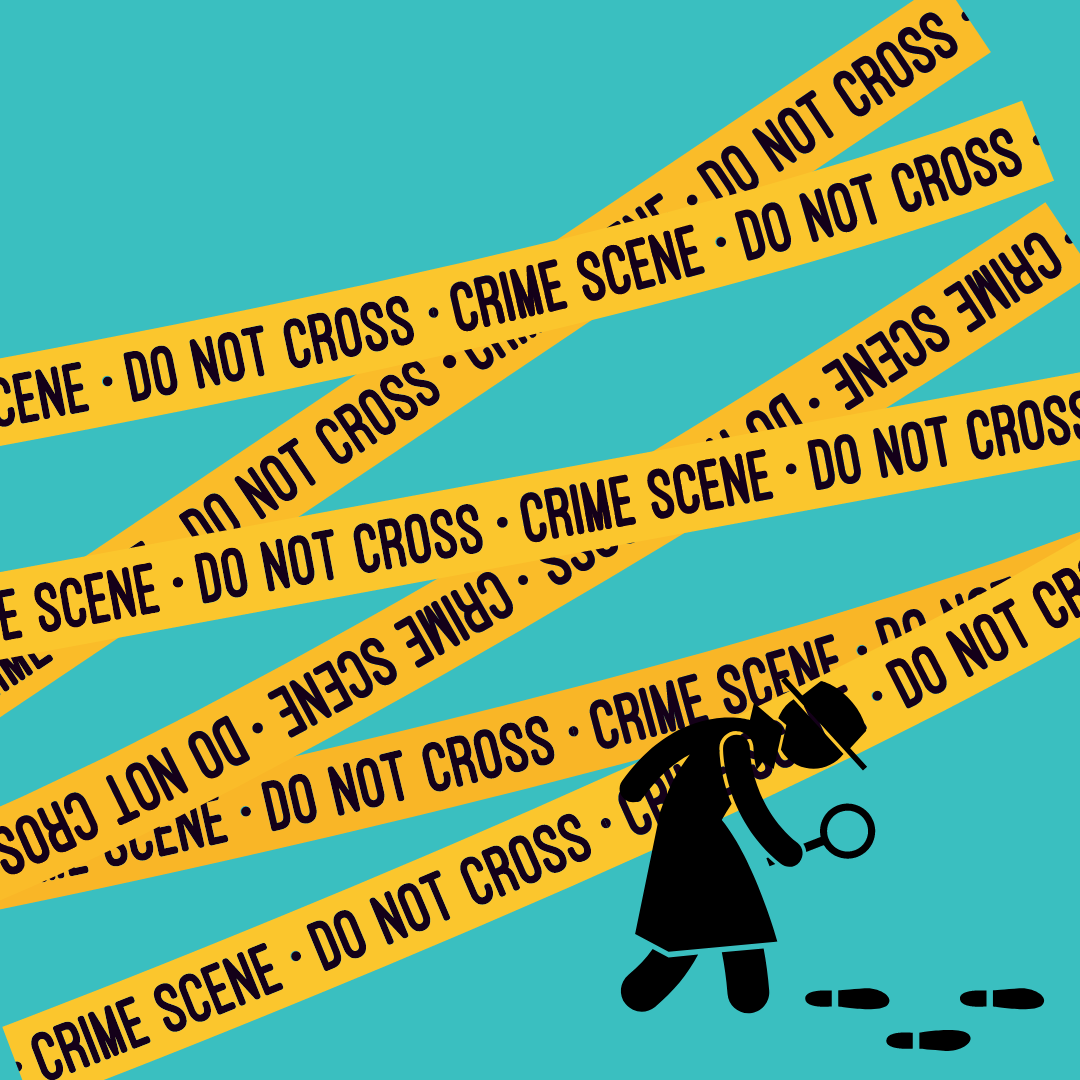
By Tillie Powell
I read my first true crime book when I was about 13. I was a big reader and in my teenage mind, true crime was a logical jump from young adult mystery and I. was. hooked. I would check out stacks of true crime books—learning about Elizabeth Smart and Jeffrey Dahmer and Ted Bundy and on and on. This interest led me to videos and podcasts, which filled my mind with even more knowledge of the horrors of the world, many of which centered sexual violence.
However, I eventually tapered down my consumption after listening to an episode of the You’re Wrong About podcast, True Crime with Emma Berquist (I definitely chose to listen to this in place of some story about someone being brutally murdered, I’m sure). This episode sparked my interest in the ethical dangers of true crime and I eventually decided to stop listening to true crime podcasts completely.
And what I have learned from becoming a reformed true crime girly is this: true crime is melting our collective brains. Because we are constantly barraged with the Next Big Story in true crime, how can we ever feel safe? How can we ever build community if everyone that surrounds us is a potential perpetrator and we are perpetually a potential target?
True crime is a beast and if we want to think of true crime through a more critical lens, we need to consider who true crime truly benefits and who we are being made to fear. Though there are exceptions, true crime emphasizes the stories of young, relatively privileged, traditionally attractive white women. To illustrate this, the Columbia Journalism Review recently released a calculator that determines how many news articles would be written if you were to go missing.
News outlets and true crime media cover the stories of young white women and girls far more often than the stories of people who hold other identities. For example, as a 19-year-old white woman living in the state of Utah, I would be covered by 91 news articles, according to the Are You Press Worthy calculator. In contrast, an elderly Hispanic man’s disappearance would be covered in fewer than five stories. The current state of true crime reporting perpetuates the widely accepted notion that white women are at the greatest risk, even though this is not reality.
I’m also thinking about the fact that we have made it acceptable to find entertainment in others’ suffering. Why did I think it was normal and okay to walk to my classes while listening to a podcaster make jokes about someone’s violent demise? What do we gain from violence (real-life violence!! That features real-life people!!) as entertainment?
I know that a lot of the time, we view our collective obsession with true crime as a net good because we think that it teaches us how to be safe. But does true crime really center primary prevention? The reality is, true crime does not provide a roadmap on how to prevent our own victimhood and it absolutely doesn’t teach us how not to harm others. In fact, the prevalence of true crime may perpetuate victim blaming of those who do experience violent crime. If we have all those stories of what not to do, then if something happens, we are to blame.
True crime emboldens us to hold the belief that, in the same situation, we would somehow be different; we would be able to fight back, we would be smart enough to evade capture and we wouldn’t have been stupid enough to end up in that situation in the first place. True crime also shifts the focus from the far more common types of assault, which happen between people who know each other, onto assaults by strangers. True crime paints an image of people who cause harm as these proverbial boogie men who are in every empty parking lot just waiting to pounce on the innocent white girl. It doesn’t emphasize the reality that the people who are often causing harm are our friends, partners and classmates.
True crime is bad for us. It just is. As a reformed true crime girly, I have come to realize just how much true crime hurts us and I would like to challenge whoever is reading this to rethink your own true crime consumption. You may not choose to abandon true crime completely, but at the very least, choose to be more critical of the content that you consume and think it through: is a gory story really worth it if it turns someone’s suffering into your personal entertainment and enables harmful beliefs?
 Tillie Powell (she/her/hers) is studying health and kinesiology with an emphasis in community health education. She is a student staff member at the McCluskey Center for Violence Prevention Research & Education.
Tillie Powell (she/her/hers) is studying health and kinesiology with an emphasis in community health education. She is a student staff member at the McCluskey Center for Violence Prevention Research & Education.
